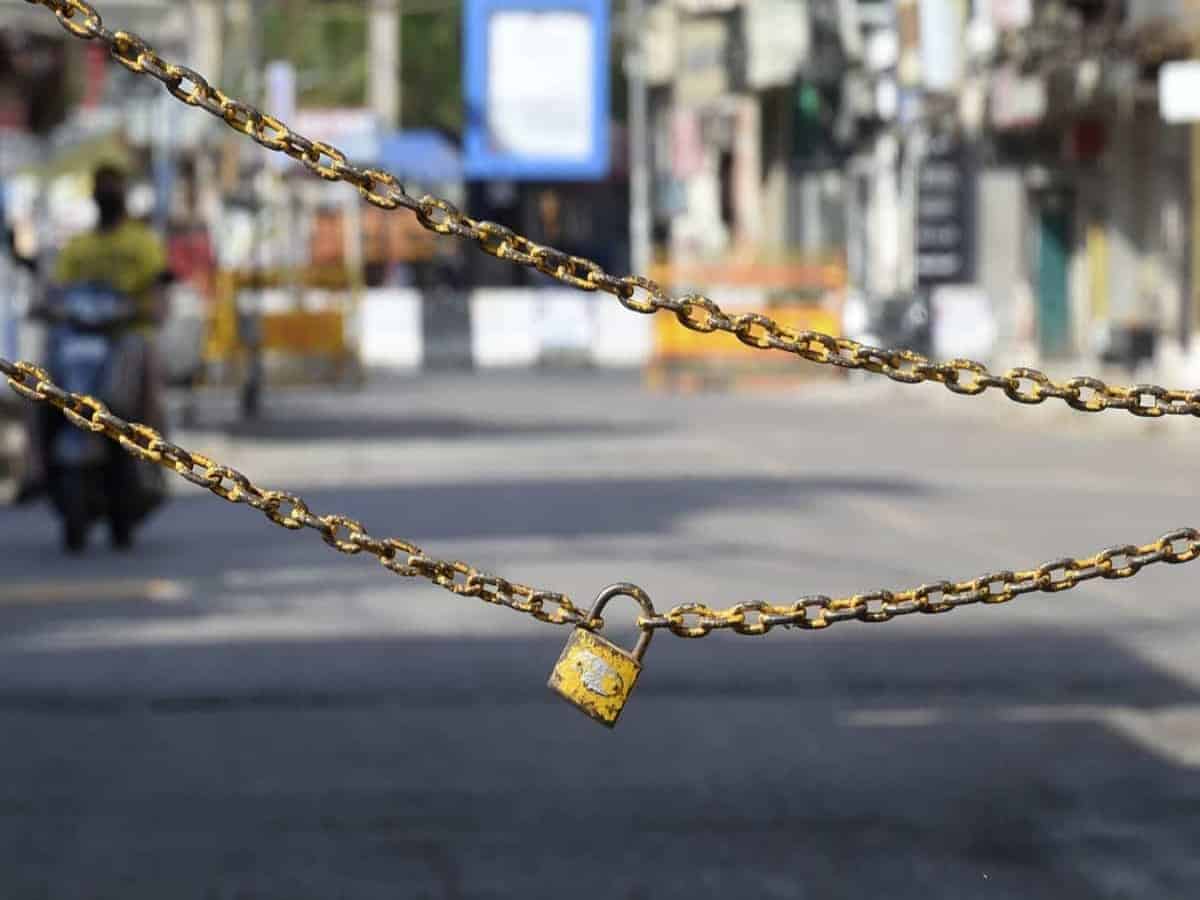
Mumbai: It was on a warm March evening four years ago when India experienced an unprecedented, total and long-drawn, nationwide health-related restriction on public movements, called ‘lockdown’, to combat the early fears of the Covid-19 outbreak.
Sensing the possible repercussions of the deadly prowl of the Covid-19 virus which reportedly took ‘birth’ in China the previous year, the World Health Organisation (WHO) on March 11, 2020, officially declared it as a global pandemic, virtually isolating people and countries of the world from each other.
A fortnight later, among the first in the international comity of nations, Prime Minister Narendra Modi had declared the nationwide lockdown (March 24, 2020).
People locked up in their homes, villages, towns, cities, districts, states, and even the country as a whole and shuddered indoors for months thereafter.
After four years today, the Covid-19 pandemic notched up an ominous track record for India and the world.
As per the Covid-19 tracker, Worldometer, India recorded a total of 4,50,33,332 cases. Of which, a staggering 533,535 were fatal.
The US led the planet with a stupendous 11,17,27,592 afflictions and the highest 12,18,464 deaths — more than double of India’s toll.
The world notched a grand total of 70,43,18,936 infections and 70,07,114 souls falling to the scourge of the invisible virus.
At the other extreme, of the 229 countries on earth monitored by Worldometer, the Western Sahara (West Africa) had the lowest — 10 Covid-19 infections plus one death — in a population of around 500,000, making it the second most sparsely populated country in the world.
It was preceded by the Vatican City — the abode of The Pope — with 29 afflictions, Tokelau (80), in the sub-100 category.
In the 1000-plus recorded cases were Niue (1,059 cases, near New Zealand), Montserrat (1,403 cases and 8 deaths, in the Caribbean Isles, a British Overseas Territory), and Falkland Islands (1,930 cases, another British Overseas Territory and the cause of the Falklands war of 1982 between Argentina and UK).
As the world reeled under the impact of Covid-19, certain epochal developments were witnessed — the annual Hajj pilgrimage to Saudi Arabia’s Mecca and Medina was cancelled that year for the two million-plus Muslims who converge there from around the world every year.
A grim Pope Francis delivered a special blessing to the world at a rain-soaked but starkly empty St. Peter’s Square in The Vatican, but it was watched live by over 11 million people in Italy and in Europe.
Closer home in Mumbai, the iconic Mohammed Ali Road’s Ramadan street food bazaar remained shut for the entire month for the first time in its nearly 250-year-old history.
As the lockdown — starting with the first 21-day instalment — proceeded in batches for around two years, restrictions were gradually eased as many suffered mental and psychological agony owing to the curbs on free physical movements or limited interactions with fellow beings.
The pandemic and the accompanying paranoia saw a new world order emerging on various fronts, local and global air travel, health-care schemes, classroom to online teaching, offices shifting to work-from-home mode, holidays reduced to ‘at-homes’, physical buying activity largely replaced by online shopping, doorstep delivery of everything in the markets, temple visits replaced by virtual ‘darshan’, online Sunday masses or Friday ‘namaz’, etc.
Though the economies of many countries were in tatters at that time, India under Prime Minister Modi shone like a pole star on the world horizon, its in-built resilience helped overcome the crippling health crisis — it not only ‘exploited the opportunity’ but successfully overcame the pandemic challenges and was regarded as a saviour of sorts by supplying vaccines to over a 100 countries.
At the micro-level, people and families were ‘separated’ for months or in many cases even more than a year, domestically or internationally, taking solace in video calls on mobiles or laptops, weddings became truncated as most near and dear ones couldn’t attend, Covid-19 deaths shattered many families as they weren’t allowed to even take a last glimpse of their beloved or attend the funeral or burial.
However, amid the tragedy and deaths, humanity also bloomed in different ways – a Muslim man stranded in the lockdown was housed for months by a Hindu family in Maharashtra; three Hindu sisters, including one in 9th month of pregnancy, were sheltered for many months by a Muslim Mumbaikar, and one sister delivered and nurtured an infant girl at his home; and many more such heart-warming tales were seen and heard, bringing people closer to each other in a crisis.
Millions of desperate migrants moving around the country from state to state were saved from starvation by hundreds of Corona Angels like Baba Karnail Singh Khaira, 85, of Yavatmal who threw open his ‘Gurudwara Langar’ (NH-7) to feed over two million hungry migrants (March 24-May 31), and lakhs took advantage of the ‘Shiv Bhojan Thali’ of Maharashtra government’s Rs 5/plate meal scheme, and free distribution of rations by governments, corporates, NGOs and individuals to the poor and needy.
Fortunately, by December 2020, the world had developed its first Covid-19 vaccine, and in January 2021, even India got its own vaccines, both considered ‘life-savers’, but for emergency uses.
Till now, nearly 14 billion Covid-19 doses have been administered to nearly 70 per cent of the world’s eligible population, despite known and unknown, short-term or long-term side-effects, but few are complaining.
Nevertheless, the world is a much safer place to live and thrive compared with the dark era that was witnessed just four years ago.
In May 2023, the WHO declared the end of the pandemic and by the end of 2023, the coronavirus seemed to have exhausted its killer appetite and the world rests easy now — the latest figures of daily Covid-19 infections are below 100, restricted to barely a handful of countries.



